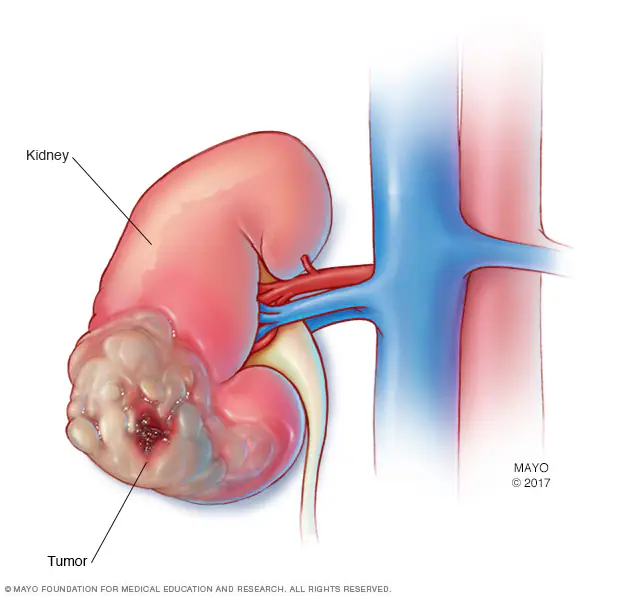Kidney cancer, also known as renal cancer, refers to the abnormal growth of cells in the kidneys. The kidneys are vital organs responsible for filtering waste products from the blood and producing urine. Kidney cancer can develop in the small tubes within the kidney, known as renal tubules, or in the renal pelvis, which is the part of the kidney that collects urine before it is drained into the bladder.

Types of Kidney Cancer: The most common type of kidney cancer in adults is renal cell carcinoma (RCC), which accounts for about 90% of cases. There are several subtypes of RCC, including clear cell RCC, papillary RCC, chromophobe RCC, and other rare subtypes. Another type of kidney cancer is transitional cell carcinoma (TCC) of the renal pelvis, which affects the cells lining the renal pelvis and is less common than RCC.
Risk Factors: Several factors may increase the risk of developing kidney cancer, including smoking tobacco, obesity, older age, high blood pressure (hypertension), certain genetic conditions (such as von Hippel-Lindau disease or hereditary papillary renal cell carcinoma), family history of kidney cancer, long-term dialysis treatment, exposure to certain chemicals (such as asbestos, cadmium, or organic solvents), and gender (men are at higher risk than women).
Symptoms: Kidney cancer often does not cause symptoms in its early stages, and symptoms may not appear until the cancer is advanced. Common symptoms may include blood in the urine (hematuria), which may cause urine to appear pink, red, or cola-colored, pain or discomfort in the side or back that does not go away, a lump or mass in the side or abdomen, unexplained weight loss, fatigue, fever, and night sweats. However, these symptoms can also be caused by other conditions, so it’s important to see a healthcare provider for evaluation if they persist or worsen.
Diagnosis: Kidney cancer is typically diagnosed through a combination of methods, including medical history and physical examination, imaging tests (such as ultrasound, CT scan, or MRI), and biopsy (removal and examination of a sample of kidney tissue). The biopsy helps confirm the diagnosis and determine the type and stage of the cancer.
Treatment: Treatment for kidney cancer depends on factors such as the type, stage, and location of the cancer, as well as the individual’s overall health and preferences. Treatment options may include surgery (such as radical nephrectomy or partial nephrectomy), ablation therapy (such as radiofrequency ablation or cryoablation), targeted therapy (such as tyrosine kinase inhibitors or immune checkpoint inhibitors), immunotherapy (such as interleukin-2 or immune checkpoint inhibitors), radiation therapy, and supportive care measures (such as pain management and nutritional support). Treatment may be used alone or in combination, and it may be tailored to each person’s specific situation.
Prognosis: The prognosis for kidney cancer varies depending on factors such as the type, stage, and grade of the cancer, the individual’s age and overall health, and how well the cancer responds to treatment. Early-stage kidney cancer often has a better prognosis, with higher survival rates. However, even in cases of advanced kidney cancer, advances in treatment have led to improvements in outcomes for some individuals.



